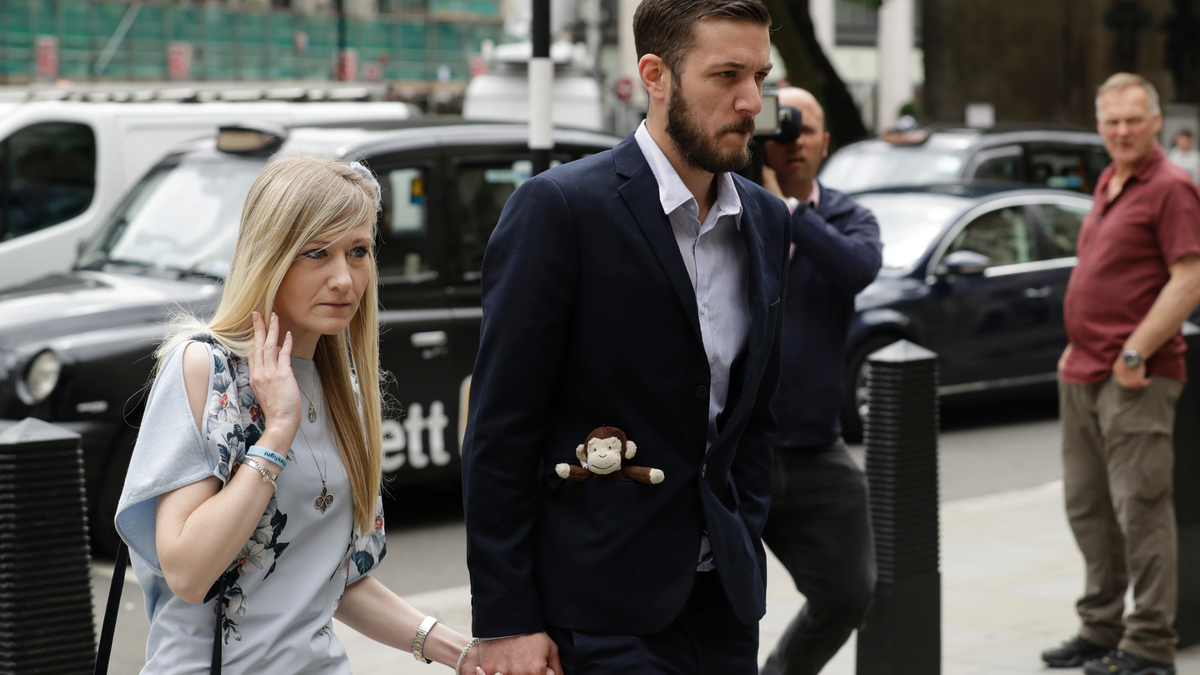
LONDON – An American doctor who specializes in conditions such as that affecting Charlie Gard will travel to Britain next week to assess the critically ill baby.
High Court Judge Nicholas Francis said Friday he is "open-minded about the evidence" to come after the visit of Dr. Michio Hirano of Columbia University.
The 11-month-old boy suffers from mitochondrial depletion syndrome, a rare genetic disease that has left him brain-damaged and unable to breathe unaided.
Hirano's research focuses on mitochondrial diseases and genetic myopathies and he has treated others with conditions similar to Charlie's.
They boy's parents are fighting an emotional legal battle with Britain's most famous children's hospital over whether trying an experimental treatment is in Charlie's best interest. The case attracted international attention after Pope Francis and President Donald Trump weighed in.
They have been fighting to take him to the United States for treatment.
Hirano will assess Charlie, meet his current immediate-care team and other specialists, including a doctor from the Vatican children's hospital. Charlie's mother, Connie Yates, fought to attend and was given permission — even though it would not normally be allowed.
"It may be unconventional but this case is full of unconventional aspects," the judge said.
Francis has promised to rule by July 25.
Charlie suffers from mitochondrial depletion syndrome, a rare genetic disease that has left him brain-damaged and unable to breathe unaided.
Specialists at Great Ormond Street Hospital have fought the parents' bid for treatment because they don't think it will help and may cause him pain. The hospital says Charlie should be allowed to die with dignity.
A succession of courts has backed the hospital, but the case returned to the High Court Thursday after claims of new evidence and the high-profile interventions
Hirano, who testified via video-link on Thursday, said it was worth trying treatment that has recently emerged.
Hirano's name appeared in public only on Friday, as a court order had previously blocked its mention.






































